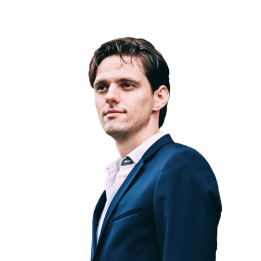
Adam Adamovitch is Business Developer at Eventech. From early years, Adam has had a deep interest in physics, biology, music and entrepreneurship.
Adam has extensive experience as a PR & Marketing Associate, Project & Event Manager in a VC fund, as well as has experience in teaching & mentoring, media commercialisation (particularly music and audio related), and graphic design.
He was one of the main organisers of several deep-tech events, including the largest deep-tech conference in Baltics – Deep Tech Atelier – on behalf of Commercialization Reactor, in 2023.
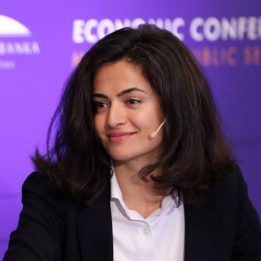
Liza Aizupiete is a Co-founder and Managing Director of Fintelum - an equity crowdfunding platform, which also serves the burgeoning crypto capital markets industry. Previously Liza was a founder and the Managing Director of a cryptocurrency exchange Globitex, as well as the General Director of Lithuanian e-money institution NexPay UAB. A Latvian native, Liza graduated from the University of Geneva, Switzerland, majoring in Philosophy. Liza is experienced in the financial industry, including trading, fund and portfolio management. Since 2012, she has been passionate about Bitcoin and later crypto industry at large, as a proponent of a decentralised and sound monetary system. In the aftermath of Russian aggression in Ukraine, Liza is presently also serving in the National Guards, recently engaged in science, technology and research innovation and implementation centre.
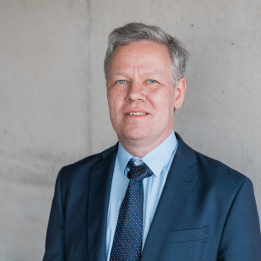
Andris Ambainis is a professor at the Faculty of Computing, University of Latvia. The focus of his work is quantum algorithms, quantum software and the theory of quantum computing.
Prof.Ambainis has invented widely used methods for developing quantum algorithms and studying their complexity (such as quantum walks and quantum lower bound methods). His work has been recognized with the Grand Medal of the Latvian Academy of Sciences and an ERC Advanced Grant.
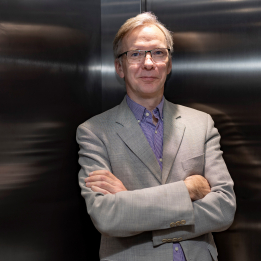
During his studies at the University of Latvia, Andris started working at the Institute of Solid State Physics in 1984, where he developed as a researcher mainly in the fields of photonics, nonlinear optics, and quantum chemistry.
From 1990 to 2010, Andris worked in business and public administration, where he developed IT solutions and managed challenging projects and organizations. Andris has returned to science since 2009, where he applies insights from business and public administration in science management.
His research interests now cover many topics, including X-ray absorption spectroscopy with synchrotron applications. In 2014 he received his doctorate in physics.
From 2017 to 2021 he developed the innovation development system at the institute. Andris has been director of the institute since 2021.
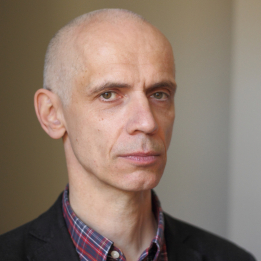
Ivars Austers started his career in social psychology by studying social groups. He was also interested in human ability of perspective-taking, namely, under what conditions people are good enough in guessing what other people have in their minds. By doing this research Ivars earned his doctoral degree from Stockholm University as well as a job position at University of Latvia where he currently holds the position of Professor of Social Psychology.
His research interests are in social identity, perspective-taking, human decision-making, and traffic psychology. “A nicely done experiment in social psychology carries an aesthetic beauty” - he uses to say.
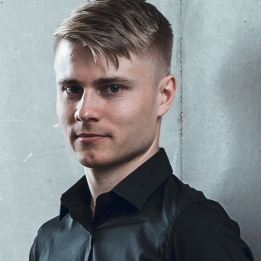
After his master’s studies in chemistry at the University of Latvia (UoL), Eduards pursued a PhD at Imperial College London (Great Britain) under supervision of prof. Tom Welton. This was followed by a return to Riga with the support of a PostDoc Latvia grant, within the framework of which Eduards interned at CNRS/ENS Lyon in France, as well as established a collaborator network with researchers in Portugal and New Zealand. Currently, he is leading a research direction at the Faculty of Chemistry, UoL. Eduards is a board member of the Association of Latvian Young Scientists, and the vice-chairman of the Advisory Council of the Latvian Science Council.
Eduards’ scientific interests are related to improving the sustainability of chemical processes, including finding new applications for ionic liquids - salts that are liquid at ambient temperature and were discovered in Riga by the Latvian chemist Paul Walden back in 1914.
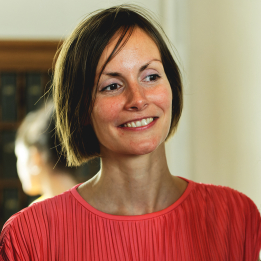
Joanna Balasis-Levinsen is a geophysicist, who joint the EEA in 2022.
She has always been working with Earth Observation Data; first in academia, then in a national mapping agency, and now at the EEA.
Key focus: ensuring that developed products meet the user needs and requirements.
Now she is doing that for the Copernicus Land Monitoring Service portfolio.
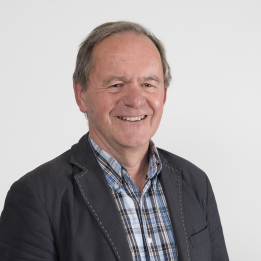
Director of agriculture and acting County Governor. Director General of the Norwegian Institute of Land Inventory, and the Norwegian Forest and Landscape Institute, director of Research at NIBIO, now special adviser at NIBIO. Key interests: Bioeconomy, food security and geopolitics, climate risk assessment, mitigation and adaptation, soil protection, sustainable food systems, policy advice and knowledge dissemination.
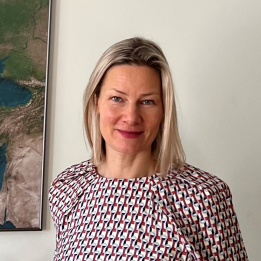
Ilze Barga has Msc in Computer Science, Management IT, GIS, and more than 20 years experience in GIS, earth observation and spatial data project development and management.
Ilze has experience in managing R&D INTERREG, ESA, ERDF, Eurostars-2, Horizon 2020 and many commercial projects and technologies such as ForestRadar for monitoring forest risk (clear-cut, windfall, excess water, beaver dams, bark beetle damage etc.), flood, fire etc. BSS proprietary fully operational Cloud Computing Platform (ForestRadar) for remote sensing (EO) and sensor data (https://www.ocre-project.eu/eo-catalogue) is used as a core component to provide commercial EO data services and support scientific institutes with different spatial data and flexible cloud computing environment.
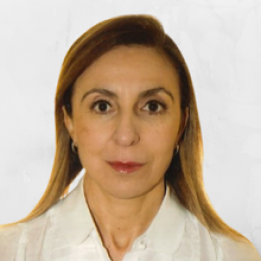
I’m head of Earth Observation applications at the Swedish National Space Agency (SNSA). Working with Earth Observations programmes and data exploitation at the department of Space research and development.
My primary responsibilities are the European Copernicus programme and climate change initiatives at national and international levels. Mainly developing and managing applications using satellite data.
I am Head of Swedish delegation to ESA-PBEO. Space for Climate Observatory Swedish national focal point.
I have more than 20 years of experience in the field of Earth Observation and spatial oceanography. Participated in extensive stakeholder outreach and interaction with government agencies. Within my previous positions, I worked as physical scientist at the Ministry of Fisheries and Oceans Canada, as research engineer at the Department of Ecology, Environment and Plant sciences at Stockholm University in Sweden, as senior consult in remote sensing and GIS at Metria, Stockholm.
My background: Ph.D in remote sensing, bio-optics and GIS from the University of Sherbrooke, Quebec, Canada- Engineering Master degree from ENSA Rennes, France in marine sciences :physical oceanography and marine biology.
I participated to 2 Arctic expeditions in the Canadian Arctic Ocean to study climate changes in Arctic region. I am the first Arabic woman to cross the Polar circle onboard the Canadian Ice-breaker: ‘Amundsen’ in 2005 and crossed the Northwest passage in 2007.
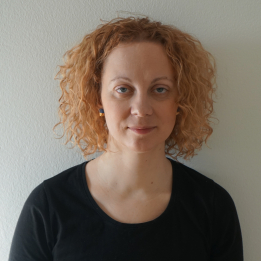
Una Bergmane is an Academy of Finland Research Fellow at the The Aleksanteri Institute Finnish Centre for Russian and Eastern European Studies. Her first book "Politics of Uncertainty: the United States, the Baltic Question, and the Collapse of the Soviet Union" (OUP, 2023) investigates the triangular relations between the US government, Baltic independence movements, and Moscow during the perestroika years.
She holds a Ph.D. from Sciences Po Paris and has been a research and teaching fellow at Cornell University and the London School of Economics.
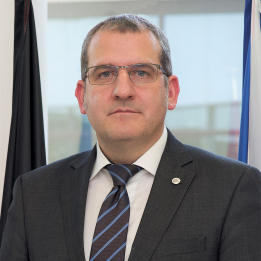
Prof. Aivars Bērziņš is currently Director of the National Institute of Food Safety, Animal Health and Environment (BIOR), position that he holds since June 2013. Since September 2016, he is Professor at the Latvia University of Life Sciences and Technologies, Faculty of Veterinary Medicine. In addition, Prof. Bērziņš is a Chair of the Management Board of European Food Safety Authority and Vice-chair of the Senate of Latvian Academy of Sciences.
Previously, he took different academic positions at the Latvia University of Agriculture and the University of Helsinki. Moreover, he was a visiting researcher at Purdue University (USA) and the Norwegian School of Veterinary Science. Dr. Bērziņš graduated at the Latvia University of Agriculture, Faculty of Veterinary Medicine and obtained his PhD degree in Veterinary Medicine and Food Hygiene at the University of Helsinki, Faculty of Veterinary Medicine in Finland.
His scientific interests are related to the molecular epidemiology and traceability of psychrotrophic foodborne pathogens in food and the environment, with a special focus on the application of the One Health concept in the surveillance of infectious diseases.
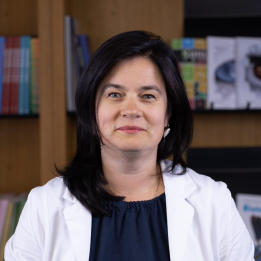
Professor at Institute of Energy Systems and Environment, Riga Technical university. She has two research paths - developing technological solutions for improving building energy efficiency and modeling complex, non-linear, dynamic systems using the system dynamics modeling method. She applies this method to study the socio-technical transition in the energy sector, focusing on interdisciplinary research. Andra is an author of more than 140 scientific publications.
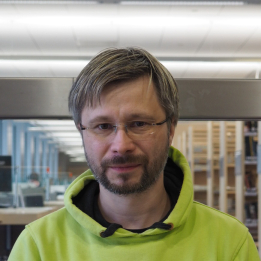
Uldis Bojārs is a computer scientist and software engineer interested in the fields of Semantic Web, Open Data and Digital Libraries.
In 2010, Uldis obtained his Ph.D. in Computer Science from the National University of Ireland, Galway, focusing on the Semantic Web and its applications.
Uldis is an Associate Professor at the Faculty of Computing, University of Latvia, where he shares his knowledge and expertise with students, and a Data Semantics Development Manager at the National Library of Latvia, where he works on library linked data projects, enhancing information accessibility and resource sharing.
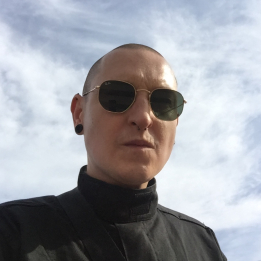
Kristians Brekte visual language contains references to gothic and black metal subcultures, street art, religion, art history and pop culture. Brecht is fascinated by the dark side of society and in his works he discusses the concepts of death, suffering, sexuality, faith and immorality. The plot vandalism in the author's installations alternates with the purity of the form and technical workmanship, combining sharply critical or derogatory indications and quotations in an aesthetic that has already gained recognition. It is also marked by the use of colors, materials, light and sound, which repeatedly points to Brekte's interest in deconstructing traditional art forms such as painting or sculpture and making a departure from the classical understanding of them.
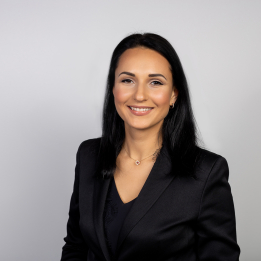
Main focuss is to improve the innovation ecosystem and overall innovation capacity. Member of the Board of the European Innovation Council and the Latvian Association of Start-ups, as well as managing the RTU Vice rector for Innovations Office, which implements the university's valorization strategy.
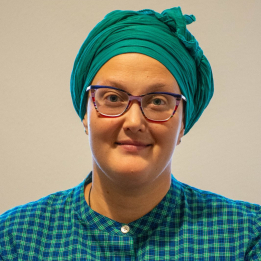
Has taken part in research at University of Latvia (UL) Centre for Diaspora and Migration Research, The Institute of Philosophy and Sociology of the University of Latvia about migration: diaspora studies (media, full time students outside Latvia, Latvian schools outside Latvia, camps).
Worked in several government institutions (Latvian State Education Development Agency, Latvian Council of Science, The Ministry of Education and Science concerning science communication.
Board member of Association of Latvian Young Scientists from 2019 - 2022.
PHD candidate at UL in education sciences, where explores non-formal learning spaces of local communities for improving social resilience of adults with migration background.
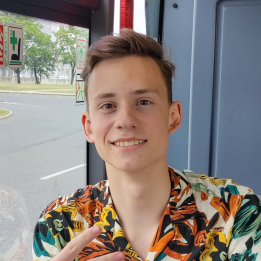
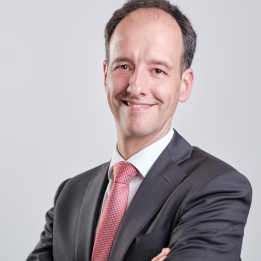
On 16 October 2020, Rodrigo da Costa took up his duties as Executive Director of the European Union Agency for the Space Programme (EUSPA), formerly the European GNSS Agency (GSA). Prior to this, he was the Galileo Services Programme Manager from March 2017.
EUSPA is an Agency of dedicated EU professionals working for a stronger, more competitive and united European Space Programme, creating synergies between satellite navigation (EGNOS & Galileo), Earth Observation (Copernicus) and secure telecommunications (GOVSATCOM). EUSPA designs and delivers user-centered services working together with the European Commission and a wide range of national, European and international stakeholders, industries and user communities. The EU Space Programme is both a resource and a springboard for the European economy, competitiveness and sustainability.
Before joining EUSPA, Rodrigo da Costa held several senior project management, business development, and institutional key account management positions in the space industry, in the areas of human space flight, exploration, launchers and R&D.
Rodrigo da Costa holds a degree in Aerospace Engineering from the “Instituto Superior Tecnico” in Lisbon, a Master’s degree in Aerospace Engineering from the University of Delft, and an MBA from the EuroMBA consortium of Business Schools.
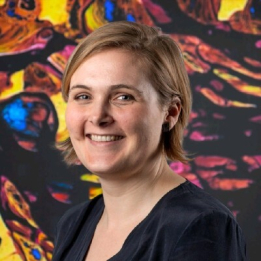
Annekatrien Debien is a Manager at SpaceTec Partners. With her background in Earth Observation engineering, and 10+ years of experience working in the European Earth Observation sector, she has gained extensive knowledge on the technologies and applications that satellite imagery can offer. At SpaceTec, she has organized over 20 training and information sessions on Copernicus across EU Member States. Before joining SpaceTec, Annekatrien has worked at Kongsberg Satellite Services, developing maritime applications based on satellite imagery, and at the European Space Agency as a System Engineer.
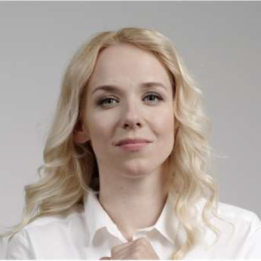
Earned her PhD in microbiology in the University of Latvia, Faculty of Biology. Has studied electrochemistry, fuel cell design in Renewable Energy School in Iceland. Research experience in the Institute of Solid State physics (ISSP UL) since 2008, joint project cooperation with Riga Technical University. Research experience in Aarhus University, University of Akureyri and University of Vienna. In the Faculty of Biology and in the Institute of Solid State physics (ISSP UL) since 2008, developing bachelor, master and doctoral thesis. Biophysical research direction focused on the production of bio-hydrogen and research with hydrogen production. Scientific, Regulatory and Public Affairs manager in L’Oréal. Worked in radio Naba as radio host, as communication assistant in the European Commission Representation in Latvia and was co-leading local scientific podcast “Sargiet galvas!”.
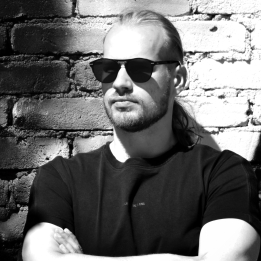
Background in electronics engineering with emphasis on Satellite Communications and PCB design. Currently head of Engineering and Technical Operations at Radio telescope/large aperture antenna site. Interests include RF & Antenna design and operations, especially for deploying antennas for dual use, both in astronomy and communications.
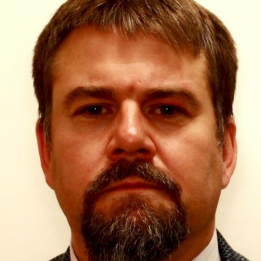
In the period from 2004 to 2017, he was a dean and professor at the Faculty of Forestry of the Latvian University of Agriculture. Scientific activity is related to economic and political issues of forest resources, remote sensing, forest management planning and forest assessment issues. Currently, the Deputy Secretary of State for Climate Policy at the Ministry of Climate and Energy.
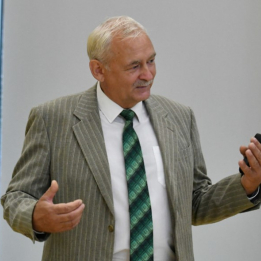
|
Modris Greitans has been working at Institute of Electronics and Computer Science (EDI) since 1990 and is director of the institute since 2007 (2015-2019 – Scientific Director). Doctor degree obtained in computer sciences by defending PhD thesis in signal processing subfield. Research topics include signal and image processing, artificial intelligence, Internet of Things, smart mobility, personalized medicine (intelligent wearable sensor systems), digitalization of Industry4.0 and robotics. Currently Modris is full member, Foreign Secretary and Board member of Latvian Academy of Sciences. Co-author of the European IT Prize winner (1997) “DASP-lab system”. Laureate of the Eizens Arins Award (the most prestigious award in the Latvian ICT field) in 2018. Editor-in-chief of Journal "Automatic Control and Computer science". |
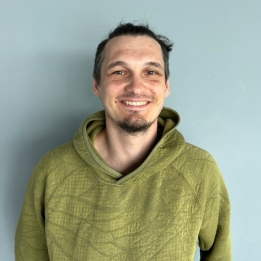
Andrei Grishanov holds degree in Environmental Science and studied Computing and Information Systems including Convolutional Artificial Neural Networks (ANN). Andrei has extensive experience in building enterprise GIS systems and platforms (Digital Innovation Hub, EO Platform, etc.), working with different spatial data formats and delivering satellite imagery derive data services. Andrei is responsible for technical development of proprietary technology ForestRadar for the big forest management companies providing vegetation monitoring and analysis using both optical and radar satellite imagery. He has experience in system analysis, processes automation and technical management of R&D INTERREG, ESA, ERDF, Eurostars-2, Horizon 2020 and many commercial projects and technologies such as ForestRadar for monitoring forest risks (clear-cut, windfall, excess water, beaver dams, bark beetle damage, flood, fire etc.). Andrei has developed fully operational Cloud Computing Platform (ForestRadar) for remote sensing (EO) and sensor data (https://www.ocre-project.eu/eo-catalogue) which is now used as a core component to provide commercial EO data services and support scientific institutes with different spatial data and flexible cloud computing environment.
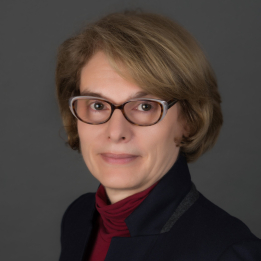
Prof. Hicks specializing in metrics for science and technology policy.
First author on the Leiden Manifesto for research metrics published in Nature, which has been translated into 24 languages and won the 2016 Ziman award of the European Association for the Study of Science and Technology.
Her work has informed policymakers in the U.S., Europe and Japan. She has advised the OECD, Flanders, the Czech Republic, and Sweden on national research evaluation systems.
Chaired the School of Public Policy for 10 years and currently co-chairs the international Atlanta Conference on Science and Innovation Policy and has been an editor of Journal of Research Evaluation.
Prof. Hicks has taught at the School of Business at the University of California, Berkeley; SPRU, University of Sussex, and worked at NISTEP in Tokyo.
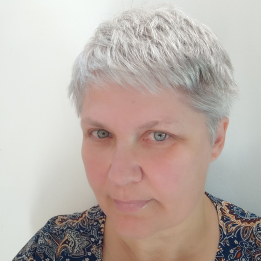

Founder of Latvian Space Industry Association. Head of student high power rocketry team at Riga Technical University. Founder of Space Education Centre in Cesis, Latvia. Social entrepreneur. Academic and business expertise in self-organization of social systems.
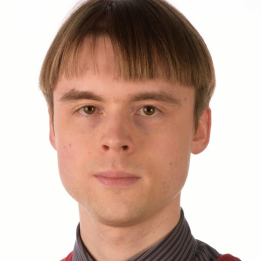
M.Sc. Mechanical Engineering, LUT University (Finland).
Mechanical design of two-phase heat transfer devices, such as loop heat pipes that are used in spacecraft thermal control.
Strength and thermal calculation with finite element analysis.
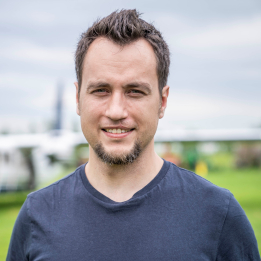
Dainis Jakovels holds a PhD in physics from the University of Latvia. Dainis has fourteen years of experience in spectral imaging, and eight years of experience in airborne and satellite remote sensing for the environment. He has been a technical manager of several ESA contracts in relation to the application of Sentinel satellite data for land cover mapping and grassland monitoring, lake water quality assessment, illegal mining activity detection as well as rice management practice monitoring in Vietnam. He is skilled in project management, interdisciplinary and international cooperation and communication, development of remote sensing data-based solution.
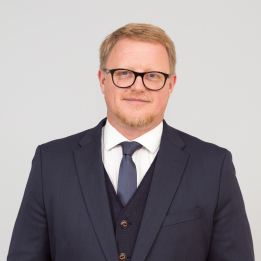
|
Professor and rector at Riga Technical University (RTU). Talis Juhna is one of the leading researchers in Latvia has the trust and confidence of the local and international scientific community. He has proven the ability to combine research, pedagogical and administrative work. Talis Juhna has more than 15 years’ experience in science and innovation management both at the university and at the national level. Actively involved in the implementation of support mechanisms for the development of start-ups and innovations in Latvia. He has introduced the technology transfer strategy that allowed RTU to become an innovative university in the region. He has developed various support mechanisms for the promotion of the innovation abilities of scientists and students and the development of new technologies, such as the RTU Science and Innovation Centre. Parallel to administrative work he is active in science, leading and as a scientist participating in local and internationally funded science projects. His research is focusing on the application of biotechnologies in drinking water, wastewater systems and renewable energy production, environmental biotechnology, biological kinetics, microbial viability, etc. He has created one of the most advanced Water Research laboratories in the Baltic States. Talis Juhna is involved in several research boards in industry-academia clusters including climate technologies, biotechnology, and material science. He has been appointed to the United Nations high-level group supporting the Technology Facilitation Mechanism, is the ambassador or the European Innovation Council, the chairman of the Advisory Council of the Latvian Science Council. He is a Board Member of Riga Water Company and co-founder of the high-tech biotech start-up. |
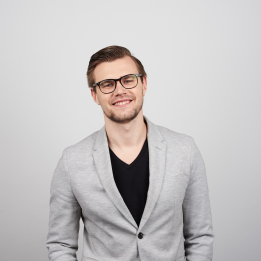
Ņikita Kazakevičs is a graduate of the Aarhus Business Academy with a degree in Innovation, Entrepreneurship, and Business Analytics. His medical start-up LifeSync IVS was recognized as one of the most innovative start-ups in Denmark in 2014 by VIA University criteria. Ņikita participated in creating and managing the Jelgava Business Incubator and the Technology Business Center in Riga. Currently, he is the Director of the Innovation and Technology Department of the Investment and Development Agency of Latvia, where he manages governmental support programs for developing start-ups and the commercialization of science.
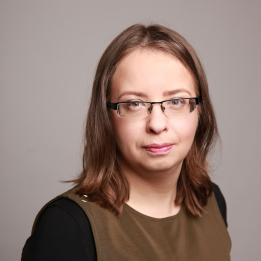
Iveta is the director and leading researcher of PROVIDUS, a think tank that specializes in good governance and public participation issues in Latvia and the European Union. She has organized and led discussions on sensitive topics, helped create interactive voter education tools, and is a widely recognized public commentator in Latvia. She has a master’s degree in law from the University of Latvia and an inter-university diploma in European Union law.
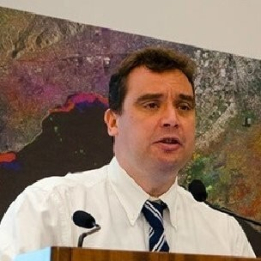
Gordon Campbell has been working for European Space Agency (ESA) since 1999 on defining and implementing actions to expand the uptake and use of Satellite Earth Observation data. This involved working on a range of public sector domains including environment, natural resources, law enforcement/ security and transport. He is also working to expand the use of satellite derived information in the International Development context in partnership with entities such as World Bank, Global Environment Facility and Inter-American Development Bank. Examples include management of natural resources (eg fisheries surveillance, management of mining activities) and putting in place more efficient sustainable development approaches (eg planning and monitoring impacts of development projects on critical habitats and ecosystems).
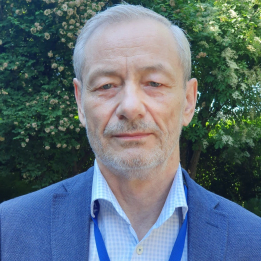
Having spent a substantial time span with the Latvian Foreign Ministry on the positions ranging from Ambassador to Germany to the Chief Negotiator for Latvia’s accession to the EU, A.Kesteris joined the European Commission in 2004 as the Head of Cabinet of the Energy Commissioner.
As of 2010 he is the Principal Adviser for Civil Society and Media in Directorate General for EU Enlargement (subsequently extended also to cover the European Neighbourhood countries). His engagement with media – in terms of policy development and elaboration of the policy-based media assistance approaches – lasts for more than 12 years.
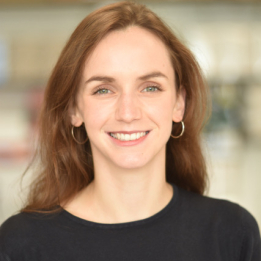
|
Anna Klucnika is a molecular biologist, currently researching cutting-edge gene editing technologies to accelerate wider implementation of cell therapies and their subsequent tangible benefits for patients. Anna completed her PhD in 2022 at the University of Cambridge, in which she studied mitochondrial genome repair and editing. After her PhD, Anna has continued her research at Laverock Therapeutics. The biotechnology company is working towards the development of new and effective cell therapies. |
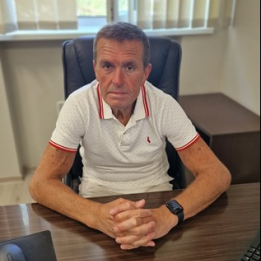
Prof. Yury Korkishko is the CEO of Fiber Optical Solution, with extensive experience in optoelectronics, fiber optics, and integrated optics. He holds a Ph.D. and a Doctor of Phys.&Math.Sci. degree. His current research interest lies in fiber optic sensors and systems. Prof. Korkishko has authored over 400 publications, including 190 papers in refereed journals, 32 patents, and three books, and has made numerous presentations at international conferences worldwide. He is a regular member of SPIE, IEEE, and OSA, among other professional societies. His company, Fiber Optical Solution, serves key customers such as NASA, Lockheed Martin, and Applanix.
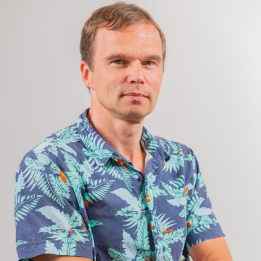
From 2013 to 2022, he was the rector of Vidzeme University of Applied Sciences, during which time he set the development of science as a strategic priority. The share of scientific activity in terms of money increased from 3 to 48 percent at the university during this time. Compiler, co-author and scientific editor of several collective monographs: How not to get lost in the future? (2021), Founders and Restorers of the Republic of Latvia (2020), History of the Latvian National Economy (2017), The Power of Nine Men (2016). Research interests: economic history and strategic communications.
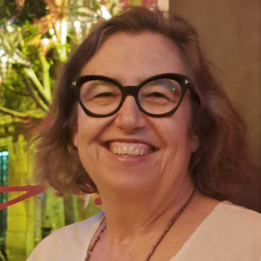
|
Dr Glenda Kruss is the Executive Head of the Centre for Science, Technology and Innovation Indicators at the Human Sciences Research Council, in South Africa. For many years, she worked in the field of innovation and development, to understand the role of universities and public research institutes in economic and social development, and the determinants of skills and knowledge flows within sectoral, national and global systems of innovation.
Her current research focus is oriented towards contextually appropriate measures of Science, Technology and Innovation for inclusive and sustainable development in Africa and the global South. Dr.Kurss has collaborated widely on comparative research projects in Africa, Latin America, Asia and Europe, and has led large scale projects for national government, building alliances and networks between researchers, policymakers and practitioners in South Africa, and globally. |
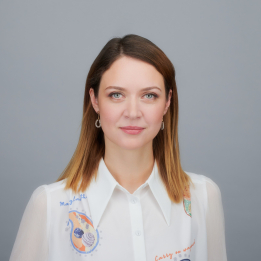
Gerda is Market Development expert at EUSPA, where she helps to explore the opportunities in using satellite Earth observation and in-situ data for projects in Healthcare and Tourism sectors. In addition, she is part of EUSPA’s Cassini Start-up activities team and is engaged with EUSPA’s Member States relations. Gerda has previous business development experience from IoT industry and has also worked for Estonian Business and Innovation Agency.
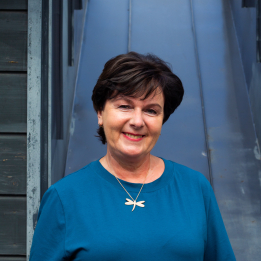
Professor at the Latvian Academy of Culture (LAC), Doctor of Sociology (Dr.sc. soc.), Lead Researcher; has been Vice-Rector of Research and Head of the LAC Institute of Arts and Cultural Studies for nine years. Editor-in-Chief of the international peer reviewed scientific journal “Culture Crossroads” (http://www.culturecrossroads.lv/) (indexed in SCOPUS) and the peer-reviewed scientific journal “Krustpunkti: Kultūras un mākslas pētījumi”. Expert of the Latvian Council of Science.
Scientific interests: contemporary cultural processes, including research on creative industries and intangible cultural heritage, on topical manifestations of dynamic changes in the cultural and creative ecosystem. Contributes to the development of research designs in social sciences, arts and humanities, including the assessments of social and economic impact and arts-based research methods. For Prof. Laķe, knowledge transfer and science communication activities are both a personal and an institutional goal.
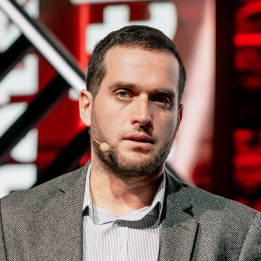
Lev Lapkis is a highly accomplished IT professional with extensive experience in management, business development, and information technology. He currently serves as a member of the Board at the Latvian Association of Space Industry, where he oversees the organization's day-to-day operational processes since 2018. Lev has successfully managed five Research and Development projects in collaboration with the European Space Agency (ESA) and RD Alfa Microelectronics. He has also worked closely with industry leaders like Thales Alenia Space and Airbus, leveraging his excellent negotiation skills to establish strong relationships with these companies. In addition to his other roles, Lev Lapkis is also a Venture Entrepreneur Partner at Commercialization Reactor. In this capacity, he works closely with deep tech startups to help develop their businesses and bring innovative technologies to market. His experience in business development and his technical expertise make him an ideal partner for startups looking to grow and succeed in the competitive technology industry.
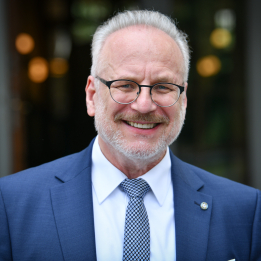
The President of Latvia Egils Levits is a Latvian lawyer and political scientist.
After graduating from Riga Secondary School No. 2 in 1972, he immigrated with his family to Germany, where he graduated from the Munster Latvian Grammar School in 1973. In 1982, Mr Levits graduated from the Faculty of Law of the University of Hamburg. In 1986, he graduated from the Faculty of Philosophy and Public Science at the University of Hamburg.
Mr Levits has actively participated in the restoration of Latvia in 1989–1991. He was a Member of the Council of the Latvian People’s Front and the Congress of Citizens. He is an author of the concept of the Declaration on the Restoration of Independence of Latvia of 4 May 1990.
Mr Levits was the first Minister of Justice after full restoration of the Constitution, the first Ambassador of Latvia to Germany after restoration of the country, the first Latvian judge at the European Court of Human Rights (1995–2004), and the first Latvian judge at the European Court of Justice.
He has been a co-author of many significant draft laws (including the Law on the Constitutional Court of Latvia, Administrative Procedure Law, Law on the Structure of the Cabinet of Ministers, etc.). Mr Levits is also the author of the Preamble or Introduction to the Constitution adopted in 2014.
Author of many scientific publications on the issues regarding state law, administrative law, human rights, and democracy. Mr Levits has provided many opinions on various legal and political and legal issues to the Latvian Parliament (Saeima), the Cabinet of Ministers, various ministries, the Constitutional Court, other courts, public authorities, the institutions of the European Union, and international institutions. He publishes regularly on development challenges in Latvia.
Mr Levits has been the Ambassador of Latvia to Germany, Austria, Hungary, and Switzerland, as well as Deputy Prime Minister, Minister of Justice, and Member of the Parliament. He has chaired the Commission of the Constitutional Law of the President of Latvia (2007–2013). Judge at the European Court of Justice (2004–2019).
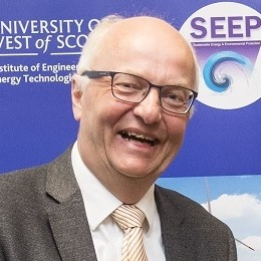
Henrik Lund is a highly ranked world-leading researcher. He is listed among ISI Highly Cited researchers ranking him among the top 1% researchers in the world within engineering and on the Stanford list of top 2% scientists.
Henrik Lund is Editor-in-Chief of Elsevier’s high-impact journal Energy with annual 10000+ submissions.
Henrik Lund is the author of more than 500 books and articles including the book ''Renewable Energy Systems”. He is the architect behind the advanced energy system analysis software EnergyPLAN, which is a freeware used worldwide that have form the basis of more than 300 peer reviewed journal papers around the world.
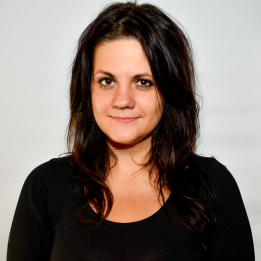
Indra is an early career academic and a political theorist, as well as an independent policy analyst and consultant. In her research, Indra focuses on democratic theory, citizenship, deliberative methods, participation, public policy, civil society and activism.
Indra holds degrees from Glasgow, UCL and Sheffield universities, and has recently been working as an academic teacher at University of Sheffield and as a Social Science Curriculum Lead at Sheffield University International College.
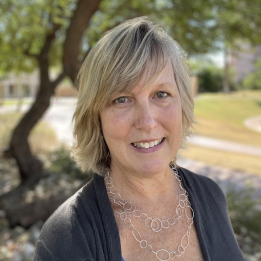
Julia Melkers is ASU Foundation Professor of Public Policy and Management in the School of Public Affairs and Director of the Center for Organization Research and Design (CORD). Her research portfolio addresses the careers, research capacity and outcomes of academic scientific and other knowledge-based professions.
Her work has been funded by the ASV Nacionālās Zinātnes fonds, Nacionāl, and several foundations. Dr. Melkers has extensive experience of more than two decades in advising and evaluating large interdisciplinary scientific teams. She is the U.S. co-editor of the Journal of Research Evaluation (Oxford University Publishers).
She holds an honorary visiting appointment at INGENIO [CSIC], University Polytechnic Valencia, Spain, and she participated in the Fulbright Specialist Program in Latvia. Prior to joining ASU, she was a Professor of Public Policy and Director of the Research on Careers in Science lab at Georgia Institute of Technology. She earned the Ph.D in Public Administration from Syracuse University.
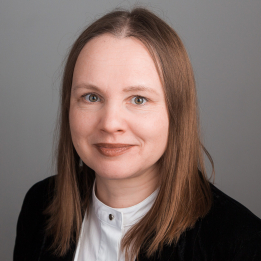
Signe Mežinska holds Dr.sc.soc. in Sociology, MA in Philosophy and MSc in Bioethics, and is teaching medical ethics, bioethics, and research ethics for more than 20 years. Her scientific interests include biomedical research ethics, ethical and social aspects of biobanking and biotechnologies, human reproductive ethics and rational use of medicines. S. Mežinska is serving as member of UNESCO International Bioethics Committee, research ethics expert for WHO, European Commission and several research ethics committees in Latvia.
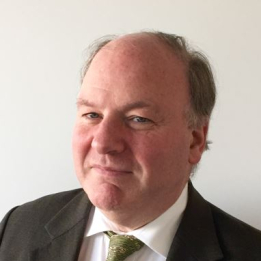
Mr. O’Reagain is responsible within the European Commission Directorate General for Research and Innovation for the roll-out of Industry 5.0 as a human-centric, resilient and sustainable approach to realising the twin digital and green transitions in the industry in Europe.
In the Directorate-General for Research and Innovation, Mr. O'Reagain was previously responsible for policy and actions to promote sustainable industrial innovation, the European public-private partnerships with industry, and the European Technology Platforms. Prior to that, he managed the benchmarking for competitiveness and innovation programme in the Directorate-General for Enterprise.
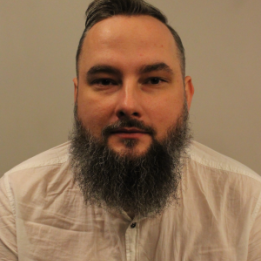
Oskars Ozoliņš received the M.Sc. degree in telecommunications from Riga Technical University, Riga, Latvia, in 2009 and the Dr. Sc.Ing. (Ph.D.) degree in optical communications from Riga Technical University, in 2013. In 2021 he received docent degree (Habilitation) from KTH Royal Institute of Technology, Sweden. O. Ozoliņš is an Academician (foreign member) at the Latvian Academy of Science. O. Ozoliņš is coholder of several world records. He is the author of around 220 international scientific publications.

Dr. Kaspars Ozols is a deputy director of development, a Member of the scientific council as well as a senior researcher in the Institute of Electronics and Computer Science (EDI) where he leads teams of engineers and researchers. He holds a Ph.D. in Electronics from Riga Technical University. He has been involved in various international projects related to the development of novel data acquisition, transmission and signal processing methods and devices for different applications in the fields of transport, health, manufacturing, etc., including participation in 15+ European joint research projects (in Horizon Europe, Horizon 2020, KDT, ECSEL, ARTEMIS, ERA-NET, EIT and COST programs). Expertise in ICT system simulation, modelling, design, development, implementation, testing and validation. Author of 25+ peer-reviewed scientific articles. Research interests include Self-Driving/Autonomous cars, Cyber-Physical Systems, Signal Processing, Wireless Communications, Wireless Sensor Networks, Internet of Things, Embedded and Low Power solutions, Artificial intelligence, robotics, digitization of industry, etc.
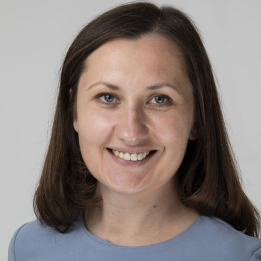
Associate professor and senior researcher in radiation chemistry at the University of Latvia. PhD obtained in 2012.
Most of the professional work devoted to radioactive hydrogen isotope, tritium behaviour in the nuclear fusion reactor materials.
Besides active teaching activities in the Faculty of Chemistry and Physics also a coordinator of research projects in the field of radioactive isotopes and radiation processes in the Institute of Chemical Physics.
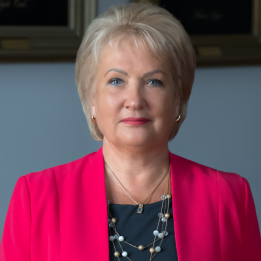
I. Pilvere has 311 scientific publications, including 31 books or their parts, 6 scientific monographs or their parts, 204 scientific articles in internationally peer-reviewed editions, as well as 70 other publications. 82 scientific publications are indexed in SCOPUS, 88 in WoSCC databases.
I. Pilverei has experience in 24 international scientific projects and 82 projects of national importance. The priority directions of scientific activity are – sustainable development of bioeconomy sectors, including agriculture and rural areas, efficient use of land, the European Union's "Green Course", the European Union's Common Agricultural Policy and its support instruments, agrarian economy, the economy and competitiveness of the food processing industry, etc.
I.Pilvere is the chairperson of the "Knowledge-intensive bioeconomy" management group of the Innovation and Research Management Council of Latvia, an expert of the Latvian Science Council, as well as a member of several international organizations - a representative of the Latvian scientific institutions of the European Union Rural Network Assembly, a member of the Association of Nordic Farmer Scientists, official representative a representative of the Latvia in the European Union Standing Committee of Agricultural Research, member of the organizing committees of various scientific conferences.
Currently, she supervises 4 doctoral theses, 11 doctoral theses supervised by her and 17 master's theses have been successfully defended.
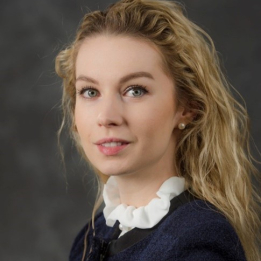
Ewelina Piskorz is Programme Officer in Earth Observation Unit in the European Commission - Directorate-General for Defence Industry and Space (DG DEFIS). She contributes to the development and implementation of the Copernicus Programme especially with regard to the management of the Copernicus Procurement Boards. Ms Piskorz is also briefing coordinator for the unit and provides legal advice.
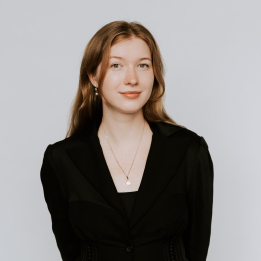
COO of SMW Group AS with more than 10 years of international experience in business development. Eleonora Pole has liaised with numerous high-end original equipment manufacturers in the automotive, defence and aerospace industries. Since 2018 Eleonora is managing research and development project implementation in the Company.
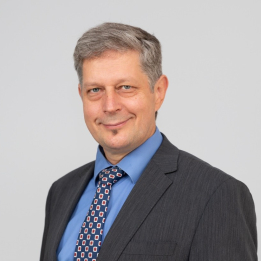
The main research experience related to wired and wireless communication systems, high speed fiber optic transmission systems (wavelength division duplexing, optical time division multiplexing), nonlinear fiber optics, quantum communication technologies, measurements on optical communication systems, and optical signal processing and sensing.
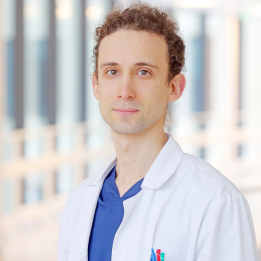
Medical doctor, specialised in internal medicine and nephrology. Scientific interest in bacteriophage possible application to treat multi-drug resistant biofilm associated infections, the role of bacterial biofilms in disease development.
Focuses also on renal research, examining the pathology of IgA nephropathy, different biomarker role in kidney disease development, e.g., investigating shrunken pore syndrome.
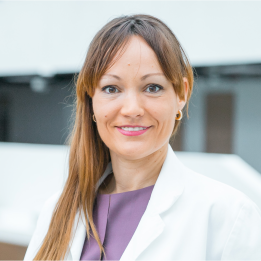
Anna Ramata-Stunda is a co-founder and CEO of Alternative Plants, a biotech company that specializes in manufacturing of sustainable botanical ingredients.
Anna has a background in microbiology and cell biology, with over 12 years of experience in laboratory testing of raw materials, cosmetics, and medical devices. Additionally, she has co-authored more than 20 scientific publications and two patents. She is also a lecturer at the University of Latvia Faculty of Biology.
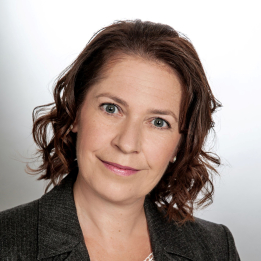
Ieva Reine holds a PhD in Public Health and Gender studies from Umeå University (2009), and Master degrees in Psychology and Public Health. She had worked as an analyst at the Swedish Social Insurance Agency for almost 13 years and has been associated researcher at the Department of Public Health and Caring Sciences since 2012. She is currently a lead researcher Riga Stradiņš University (Latvia) and Uppsala University (Sweden). Her research interests were mainly focused on the effects of social insurance on the Swedish population, especially for persons with severe functional impairments. Current research covers analysis of the health outcomes of labour market attachment, inequities in health, gender, health and wellbeing, and healthy ageing in the Nordic-Baltic region. Her research methods involve mainly epidemiological studies on large population-based cohorts. She leads several projects involving international consortia in the field of ageing.
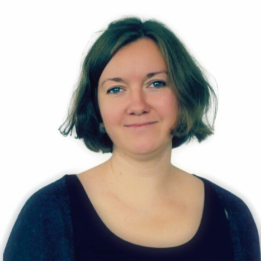
Sanita Reinsone is a leading researcher and head of the Digital Humanities Research Group at the Institute of Literature, Folklore and Art of the University of Latvia. She is also a lecturer at Riga Technical University and the University of Latvia, and has extensive experience leading research, development, and international networking projects related to digital humanities and digital cultural heritage. Her main research focus encompasses digital participatory methods in digital humanities and cultural heritage. Reinsone is the founder and coordinator of the international volunteer initiative #ScienceForUkraine.
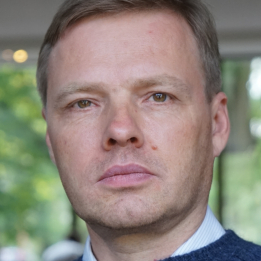
Klāvs Sedlenieks is a social anthropologist who specialises in anthropology of state, kinship and informality. He has done fieldwork in Latvia and Montenegro and has numerous academic publication. Klāvs Sedlenieks also actively engages in public debates commenting on wide range of topics from the point of view of anthropology.
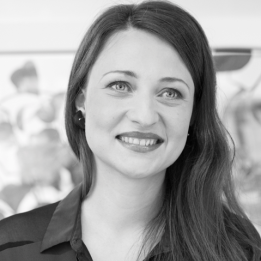
Karina Silina is a group leader at Swiss Federal Institute of Technology (ETHZ) where they study the interactions between cancer cells and immune cells with the aim to identify novel ways to treat cancer. They work with cancer patient samples as well as experimental tumor models in mice to research the development and function of the so-called tertiary lymphoid structures.These are dense clusters of immune cells similar to lymph nodes and are located in the direct vicinity of tumors. Stimulation of these structures may offer a novel approach to stimulate anti-tumor immune response.
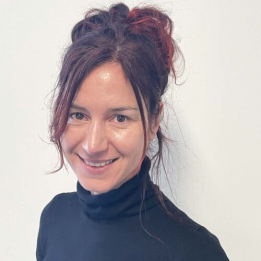
She has recently joined Mercator Ocean International (MOi) where one of her main duties is to increase user uptake of Copernicus Marine Data. Tina has more than 10 years of experience in ocean observation gathered through different research and R&D activities mainly around (in situ) monitoring of phytoplankton communities and their spatio-temporal dynamics in relation to environmental conditions.
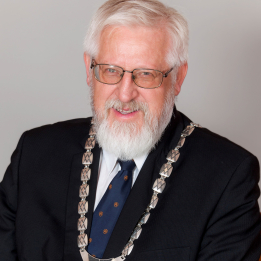
Prof., Dr. Tarmo Soomere is mathematician and marine scientist, since 2014 the President of the Estonian Academy of Sciences. His scientific interests are mostly concentrated to the analysis and mitigation of marine hazards and preventive methods of coastal protection.
He has received twice the national science award and in 2014 state decoration of 3rd class White Star order for developing coastal science in Estonia.
A highly unusual distinction for a scientist came from society: he was declared the Person of the Year in Estonia 2005 by daily newspaper The Postman for his contribution to the forecast of a devastating storm.
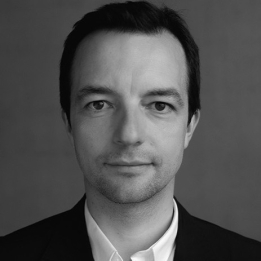
Davids is ESA industrial coordinator in Latvia, is an accomplished professional with a diverse skill set in innovation process management, product development and marketing. His expertise and passion make him a valuable contributor as he leverages technology to drive positive change for a more sustainable future.
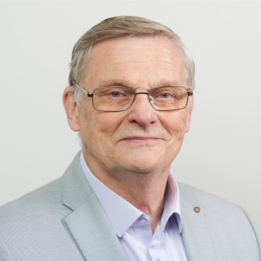
Graduated from the University of Latvia (Faculty of Physics and Mathematics), 1970. Worked at the Faculty of Physics and Mathematics of the University of Latvia - until 1975. Further at the Institute of Solid State Physics, University of Latvia (ISSP UL) since 1975. Director of ISSP UL 1999 –2016. Scientific interests: material science; energetics.
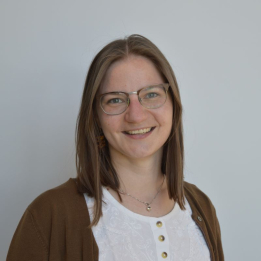
Anna studied Biotechnology in University of Edinburgh (UK) and obtained a PhD in University of Leeds (UK). She is interested in engineering biology and sustainable bioproduction processes using metabolic capabilities of microorganisms. Anna also is a mentor for Latvian student team in the international Genetically Engineered Machine (iGEM) competition.
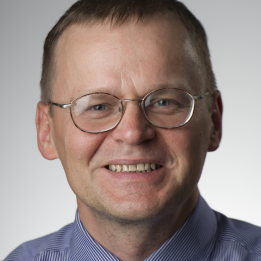
Paul Stradins is Principal Scientist at National Renewable Energy Laboratory (NREL) in Golden, Colorado, USA. Since receiving his doctorate from Latvian Institute of Physics, followed by post-PhD work at the University of Chicago, AIST laboratory in Japan, and NREL, he has worked in photovoltaics and silicon (crystalline, amorphous, quantum dots), light-induced degradation, hydrogen in silicon, optics and devices of black silicon, silane-based functionalization of surfaces for DNA attachment, silicon-film based neutron detectors and memory devices, and solar cells including tandems. At present, he is leading industrially relevant, scientifically oriented Si Photovoltaics program at NREL. His current interests include new approaches to silicon PV, verified by advanced characterization techniques (such as EPR for cell degradation and EBIC for nanostructured passivated contact studies), novel pasivated contacts for next generation PV, advanced PV tandem cell concepts, silicon as anode material for Li ion batteries.
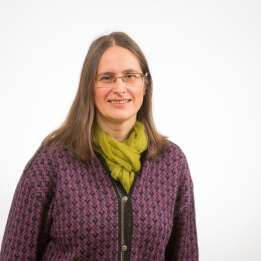
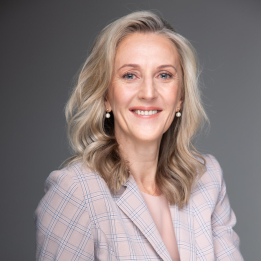
Inese Suija-Markova received her MBA degree in innovation and entrepreneurship from Riga Technical University in 2006. Currently, she is in the final year of Ph.D. studies at the same university. Her research focus is on the knowledge transfer in cross-disciplinary innovation process and management of knowledge intensive business services. She is the Vice-Mayor of Cēsis Municipality and the Vice-Chairman of Vidzeme Planning Region Development Board. She has been granted the USA State Department, Government of Canada, and the UNESCO Bank Fellowship Program scholarships. She is also a trainer in project management, innovation technologies, and creativity. She has been a participant, a speaker, and a moderator at many international conferences and workshops.
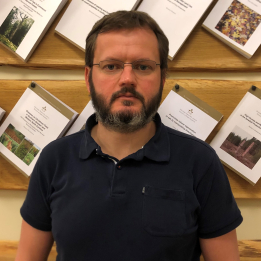
Renāts Trubiņš has been teaching and doing research in forest management and planning since 2014. His undergraduate forestry degree is from Latvia University of Agriculture in 2005 and Master’s degree from SLU in 2009, and PhD in forest management from SLU in 2014. His research has primarily focused on modelling and production possibility assessments of forests from landscape to national levels.
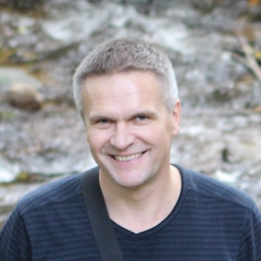
Former scientist (Ecology) with 16 years of experience at the Institute of Ecology of Vilnius University, Head of Applied Research Center at the institute of Aerial Geodesy in Kaunas with 7 years RTD experience in geo-informatics and remote sensing, since 2011 – founder and director of GEOMATRIX UAB focusing on innovation and Copernicus dowstream services. Pan-European GMES spatial data production projects funded by EC and EEA (GMES Initial Operations, EU-Hydro). Technological partner in FP7 and H2000 projects on downstream services (land cover mapping, SDI, landslides). Development of unique SAGRIS back-end processing system for Sentinel-1/2 data (www.sagris.eu). ESA PECS projects of CAP subsidies control and smart farming, resulting in operational CAPCON service designed specifically for cloudy northern Europe.
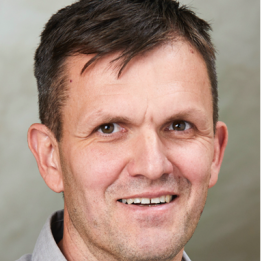
Andris Vaivads is the rector of Ventspils University of Applied Sciences and also a professor at the KTH Royal Institute of Technology in Stockholm. After graduating from the University of Latvia, he obtained a doctorate in space physics in Sweden. The physics of the cosmic plasma, which leads to the heating of the plasma and the acceleration of charged particles, is a fundamental theme in all future scientific work. Particular scientific interest is magnetic reconnection, shock wave and turbulence processes in the kinematic regime, as well as aurora cosmic source processes.
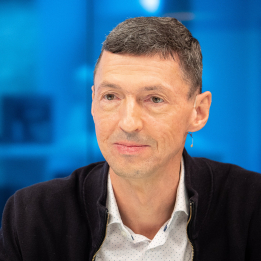
Andrejs Vasiļjevs is the co-founder of Tilde, a European language technology company known for its specialization in machine translation and other AI-based technologies for linguistically complex languages. His work involves fostering collaboration between industry and academia to advance multilingual solutions for Europe.
Dr.Vasiļjevs serves on the boards of the Multilingual Europe Technology Alliance (META-NET) and the European Big Data Value Association (BDVA), and chairs the Knowledge Society Program Council of the Latvian National Commission for UNESCO. Andrejs earned his Ph.D. in Computer Science from the University of Latvia and serves as a senior researcher there.
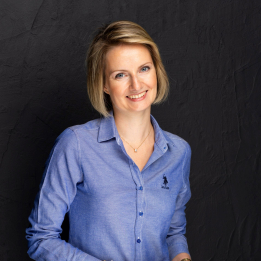
Anete Vingre is Associate Consultant at Technopolis Group and has experience as a project manager and author of various evaluations and policy studies. Anete works on studies and impact evaluations in science and innovation policy and the performance of research institutions. Anete has completed several evaluations covering research, entrepreneurship and innovation policy. She performed these evaluations for various clients, such as UKRI, Business Finland, the Ministry of Economy and Employment of Finland, the Engineering and Physical Sciences Research Council of UKRI, the European Commission and OECD. Anete has also worked on various studies related to institutional research assessment, for example, delivering the international evaluation of research institutions in Latvia, assessing the cost of UK’s REF 2021 and managing panels for the Research Council of Norway national evaluation of natural sciences.

Enterpreneur and scientist, co-founder and CEO of radar remote sensing company KappaZeta. His research is mainly about terrestrial applications of synthetic aperture radar with over 800 citations. Former head of remote sensing department of Tartu Observatory and the systems engineer of first Estonian satellite “ESTCube-1”.
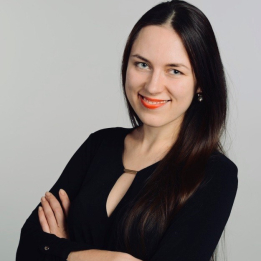
Inese is a researcher in the field of sustainability transitions. Inese has explored the politics and policy of accelerating the energy transition in the Baltic states in the context of the European Green Deal. Overall, her goal is to make sustainability work for people, focusing on the S in ESG. She has a background in international relations (LSE), international development (University of Oxford), and sustainability policy (ETH Zurich). Currently Inese is an associate at McKinsey & Company, working on sustainability topics
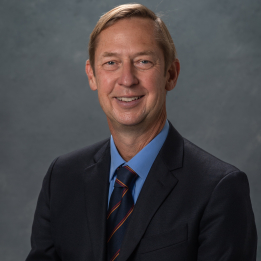
Pēteris Zilgalvis is a Judge at the General Court of the EU, Court of Justice of the European Union. Previously, he worked on new technologies at the European Commission, Council of Europe, and the World Bank, and in Latvian ministries. He has a Juris Doctor (J.D.) from the University of Southern California, and was a Visiting Fellow at the University of Oxford.
